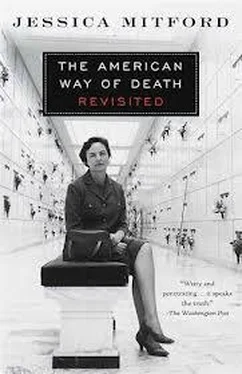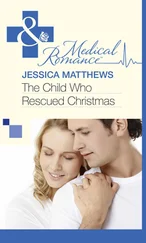Popular ignorance about the law as it relates to the disposal of the dead is a factor that sometimes affects the funeral transaction. People are often astonished to learn that in no state is embalming required by law except in certain special circumstances, such as when the body is to be shipped by common carrier.
The funeral men foster these misconceptions, sometimes by coolly misstating the law to the funeral buyer and sometimes by inferentially investing with the authority of law certain trade practices which they find it convenient or profitable to follow. This free and easy attitude to the law is even to be found in those institutions of higher learning, the colleges of mortuary science, where the fledgling undertaker receives his training. For example, it is the law in most states that when a decedent bequeaths his body for use in medical research, his survivors are bound to carry out his directions. Nonetheless, an embalming textbook, Modern Mortuary Science , disposes of the whole distasteful subject in a few misleading words: “Q: Will the provisions in the will of a decedent that his body be given to a medical college for dissection be upheld over his widow? A: No…. No one owns or controls his own body to the extent that he may dispose of the same in a manner which would bring humiliation and grief to the immediate members of his family.”
I had been told so often that funeral men tend to invent the law as they go along (for there is a fat financial reward at stake) that I decided to investigate this situation firsthand. Armed with a copy of the California Code, I telephoned a leading undertaker in my community with a concocted story: my aged aunt, living in my home, was seriously ill—not expected to live more than a few days. Her daughter was coming here directly; but I felt I ought to have some suggestions, some arrangements to propose in the event that… Sympathetic monosyllables from my interlocutor. The family would want something very simple, I went on, just cremation. Of course, we can arrange all that, I was assured. And since we want only cremation and there will be no service, we should prefer not to buy a coffin. The undertaker’s voice at the other end was now alert, although smooth. He told me, calmly and authoritatively, that it would be “illegal” for him to enter into such an arrangement. “You mean, it would be against the law?” I asked. Yes, indeed. “In that case, perhaps we could take a body straight to the crematorium in our station wagon?” A shocked silence, followed by an explosive outburst: “Madam, the average lady has neither the facilities nor the inclination to be hauling dead bodies around!” (Which was actually a good point, I thought.)
I tried two more funeral establishments and was told substantially the same thing: cremation of an uncoffined body is prohibited under California law. This was said, in all three cases, with such a ring of conviction that I began to doubt the evidence before my eyes in the State code. I reread the sections on cremation, on health requirements; finally I read the whole thing from cover to cover. Finding nothing, I checked with an officer of the Board of Health, who told me there is no law in California requiring that a coffin be used when a body is cremated. He added that indigents are cremated by some county welfare agencies without benefit of coffin.
It was just this sort of tactic described above that moved the FTC to rule in 1984 that morticians may no longer lie to the public. Anecdotal reports, however, indicate that honesty is still an elusive quality in the trade. One family that wanted to carry the ashes to the cemetery for burial was told, “You used to be able to do that. But it’s against the law now.”
Cemetery salesmen are also prone to confuse fact with fiction to their own advantage in discussing the law. Cemeteries derive a substantial income from the sale of “vaults.” The vault, a cement enclosure for the casket, is not only a moneymaker; it facilitates upkeep of the cemetery by preventing the eventual subsidence of the grave as the casket disintegrates. In response to my inquiry, a cemetery salesman (identified on his card as a “Memorial Counselor”) called at my house to sell me what he was pleased to call a “pre-need memorial estate,” in other words, a grave for future occupancy. After he quoted the prices of the various graves, the salesman explained that a minimum of $520 must be added for a vault, which, he said, is “required by law.”
“Why is it required by law?”
“To prevent the ground from caving in.”
“But suppose I should be buried in one of those Eternal caskets made of solid bronze?”
“Those things are not as solid as they look. You’d be surprised how soon they fall apart.”
“Are you sure it is required by law?”
“I’ve been in this business fifteen years; I should know.”
“Then would you be willing to sign this?” (I had been writing on a sheet of paper, “California state law requires a vault for ground burial.”)
The Memorial Counselor gathered up his color photographs of memorial estates and walked out of the house.
The fifth unusual factor present in the funeral transaction is the availability to the buyer of relatively large sums of cash. The family accustomed to buying every major item on time—car, television set, furniture—and spending to the limit of the weekly paycheck, suddenly finds itself in possession of insurance funds and death-benefit payments, often from a number of sources. It is usually unnecessary for the undertaker to resort to crude means to ascertain the extent of insurance coverage; a few simple and perfectly natural questions put to the family while he is completing the vital statistics forms will serve to elicit all he needs to know. For example, “Occupation of the deceased?” “Shall we bill the insurance company directly?”
The undertaker knows, better than a schoolboy knows the standings of the major-league baseball teams, the death-benefit payments of every trade union in the community, the Social Security and workmen’s compensation scale of death benefits: Social Security payment, $255; if the deceased was a veteran, $300 more and free burial in a national cemetery; an additional funeral allowance of up to $5,000 under some state workers’ compensation laws if the death was occupationally connected; and so on and so on.
The undertaker has all the information he needs to proceed with the sale. The widow, for the first time in possession of a large amount of ready cash, is likely to welcome his suggestions. He is, after all, the expert, the one who knows how these things should be arranged, who will steer her through the unfamiliar routines and ceremonies ahead, who will see that all goes as it should.
At the lowest end of the scale is the old-age pensioner, most of whose savings have long since been spent. He is among the poorest of the poor. Nevertheless, most state and county welfare agencies permit him to have up to $2,500 in cash; in some states he may own a modest home as well, without jeopardizing his pension. The funeral director knows that under the law of virtually every state, the funeral bill is entitled to preference in payment as the first charge against the estate. There is every likelihood that the poor old chap will be sent out in high style unless his widow is a very, very cool customer indeed.
The situation that generally obtains in the funeral transaction was summed up by former Surrogate Court Judge Fowler of New York in passing upon the reasonableness of a bill which had come before him: “One of the practical difficulties in such proceedings is that contracts for funerals are ordinarily made by persons differently situated. On the one side is generally a person greatly agitated or overwhelmed by vain regrets or deep sorrow, and on the other side persons whose business it is to minister to the dead for profit. One side is, therefore, often unbusiness-like, vague and forgetful, while the other is ordinarily alert, knowing and careful.”
Читать дальше












